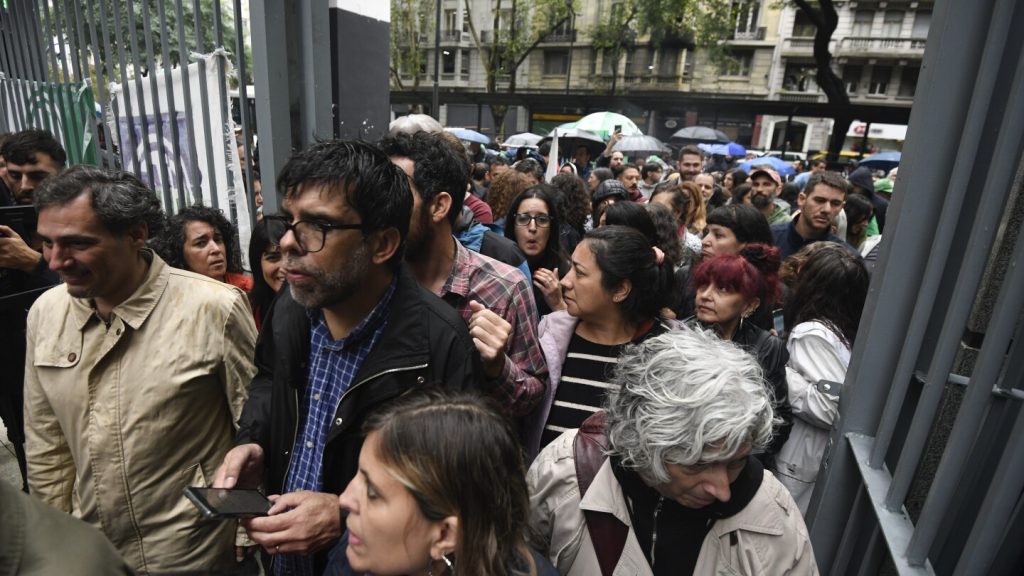Argentina has announced the dismissal of 15,000 state workers as part of President Javier Milei’s plan to reduce government spending. The move has sparked protests from affected employees and trade unions, who view the job cuts as unjust and detrimental to the country’s struggling economy. The workers, many of whom were notified of their termination last week, have marched outside government buildings in defiance, demanding their jobs back. The layoffs are part of Milei’s broader strategy to streamline the public sector and address the country’s budget deficit.
The job cuts have hit various government ministries, including those that Milei has pledged to close as part of his cost-cutting agenda. Trade unions have condemned the layoffs, arguing that they will deepen poverty and exacerbate the economic challenges faced by Argentines. The impact of the dismissals is particularly pronounced amidst rising inflation and a devalued peso, making it increasingly difficult for citizens to make ends meet. The government’s measures have also led to a reduction in social programs, further heightening concerns about the welfare of vulnerable populations.
Milei, who campaigned on a platform of economic reform and deficit reduction, has implemented a series of austerity measures since taking office. These measures have included cuts to energy and transportation subsidies, halting public works projects, and devaluing the country’s currency. While the government aims to achieve a zero budget deficit by the end of the year, the repercussions of these policies are being felt by ordinary citizens like Hernán Silva, who lost his job at the National Road Safety Agency. Silva, along with his colleagues, is fighting to be reinstated, highlighting the human impact of the government’s cost-cutting measures.
Protests against the job cuts have been met with a heavy police presence, with government officials warning of consequences for those who disrupt public buildings. However, trade unions have vowed to continue their resistance, with plans for a mass general strike in response to the dismissals. The ongoing confrontation between the government, affected workers, and trade unions raises concerns about the potential for social unrest and the impact on Milei’s efforts to achieve fiscal stability. Analysts warn that the government must strike a delicate balance between cutting spending and preventing widespread protests in order to avoid derailing its economic reform agenda. The outcome of this conflict remains uncertain as Argentina grapples with the consequences of its austerity measures.
In conclusion, Argentina’s decision to cut 15,000 state jobs has sparked tensions between the government, affected workers, and trade unions. The layoffs are part of President Milei’s efforts to reduce government spending and address the country’s budget deficit, but they have been met with resistance and protests from those directly impacted. As the confrontation escalates, there are concerns about the potential for social unrest and the impact on Argentina’s struggling economy. The government’s ability to navigate these challenges while maintaining its fiscal goals will be crucial in determining the outcome of this contentious issue.


